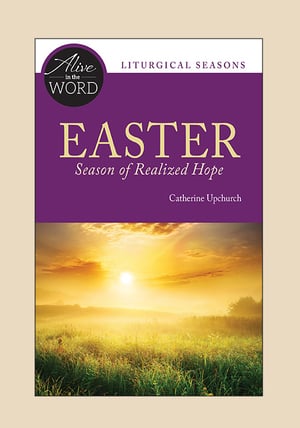What makes Scripture a Living Word? The director of Liturgical Press reflects on his own relationship with God's Word in study, prayer, and living.
I belong to a book club called “The Deadenders,” comprised of nine literal-minded members who can make some nominal claim to living on a dead-end road. (In at least one case that is an outright fiction, but we have lenient bylaws.) We take turns hosting, and the host picks the book—no committee, no debate. Last year one member chose The Adventures of Augie March, a 1953 novel by Saul Bellow. He remembered it as a deeply affecting story when he read it in college many years ago. Half of us had also read it before and were excited to re-read it.
When we gathered to discuss the book, we were surprised to discover that no one had enjoyed it. It was too long, it was too slow, the language was too formal, the sentences were too complex. The story didn’t grab us as it had when we were twenty years old. The book hadn’t changed, of course. But with decades of experience under our belts, each of us found the story to be quite different.
Mulling over the book discussion on my drive home that night, I thought about similar experiences with Scripture. A familiar story like the Wedding Feast at Cana has taken on new meaning for me with the passage of time. When I was a kid, it was all about the miracle of water into wine (and better wine at that!). The miracle is still important, but I now focus on it as a story of coming to maturity and the beginning of Jesus’ public ministry.
The more I thought about it though, I realized my experience with Scripture is different from my reaction to the novel. I had frozen the Saul Bellow story in my memory, whereas I have read and listened to Scripture over and over throughout my life.
The rewards of diving deeper into Scripture—re-reading, studying, meditating, discussing—became clear to me when I joined Liturgical Press in 1989. Little Rock Scripture Study had been a ministry and publishing partner of the Press for several years by then. Even though we introduced new studies each year, I was surprised to learn that some Little Rock groups chose to revisit studies they had already done some years before. And the real eye-opener for me was that it was not repetitious. They found the second time through to be richer and more meaningful.
This should not have come as a surprise. After all, we regularly re-read Scripture in the liturgy and hear new meanings emerge from our states of mind and life. And I have often had preachers, teachers, or authors give me fresh insight into a Scripture passage that I thought I knew.
Over time the key for me has been to keep coming back to Scripture—sometimes in study, often in worship, and day-by-day in the reflective prayer of Lectio Divina. Unlike reading a novel once and then discovering forty years later that it is a dead end, I’ve come to understand Scripture reading and study as a lifelong journey: not revisiting a text frozen in memory but finding my path in and through a Living Word.
Peter Dwyer
Director, Liturgical Press
Postscript: I will retire from Liturgical Press at the end of June, having been abundantly blessed in this ministry with great colleagues, meaningful work, and the richly varied community of people we serve.

Peter Dwyer has been Director of Liturgical Press for over two decades, establishing a rich legacy in Catholic publishing. During his tenure at Lit Press, Peter has been an unwavering supporter of the work, mission, and community of Little Rock Scripture Study. Peter and his wife, Rose, live in Collegeville Township, Minnesota, near Saint John’s Abbey. They have a son, daughter-in-law, and two grandsons in the Washington, D.C., area.








